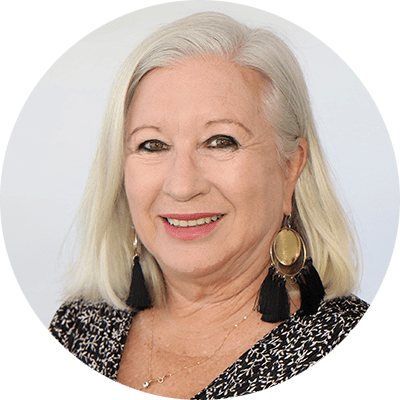Rural and remote communities deserve access to the best available healthcare. Professor Robyn Clark knows it, so she has taken the bold step of placing nurses in the driving seat to help improve coordinated access to cardiac care for rural and remote patients.
As a research leader within Flinders University’s Caring Futures Institute and a Fellow of the Australian College of Nursing – not to mention a host of influential international associations – Professor Clark works with multidisciplinary teams including doctors, pharmacists, physiotherapists, exercise physiologists, psychologists, statisticians, health economists, geographers, nurses and local communities to bring about fundamental change that improves rural and remote health services.
Solutions need a diverse but cohesive approach and Professor Clark understands that technology can serve as the great facilitator of health change in rural and remote Australia. “The rise of AgTech shows that farms are now largely being managed online, so I’m insisting that health care should also be accessible and provided at the same efficiency level as farm supplies.”
Professor Clark came to understand this need for change during her PhD studies, when her telehealth examination of almost 700 rural cardiac patients revealed that all of them had to travel to the city for advanced treatment, underlining a significant health access disparity between rural and city populations.
“Statistics show that the health needs of rural and remote populations are much higher than their metro counterparts , yet this wasn’t being recognised, and certainly not acted upon,” she says. “That served as my inspiration to do something from a nursing-led perspective.”
Utilising technology in health reaches far beyond assisting people through telehealth service provision for consultations and information delivery. It can also facilitate more effective research of health in rural and remote communities. Working with geographers, Professor Clark and researchers have been able to identify rural pressure points with peak needs for rural and remote health services, which has enabled campaigns backed by research evidence to generate funding for improved rural health services.
This has given rise to such projects as The CHAP Project, the Country Heart Attack Prevention project, delivered by Professor Clark and her statewide team in collaboration with the Integrated Cardiac Clinical Network, SA Health, Heart Foundation, the Australian Cardiovascular Health and Rehabilitation Association and the International Council of Cardiovascular Prevention and Rehabilitation. It aims to establish an accreditation program for cardiac rehabilitation programs in South Australia, to improve the quality and standardise practices across existing health services to international standards.
“Effective cardiac care is complicated, because despite high levels of evidence showing that cardiac rehabilitation reduces mortality, hospitalisations and improves quality of life, only 3 out of 10 people discharged from hospital after a heart attack receive education around risk factors control, lifestyle management, medication use and receive exercise to improve their fitness,” explains Professor Clark.
As a result, people who do not engage with cardiac rehabilitation programs are more likely to have anxiety, depression, be re-admitted to hospital or die than the people who are receiving cardiac rehabilitation. To help rectify this situation, the CHAP project created a web-based cardiac rehabilitation program, co-designed with patients and clinicians. It linked data between the state-wide databases to evaluate the project’s health economics outcomes, and developed a business model to enhance GP support for patients who receive telehealth-based cardiac rehabilitation.
Her efforts to increase access to evidence-based cardiovascular disease care for underserviced and disadvantaged populations such as women, the elderly, rural and remote, those with low literacy and socio-economic status, culturally diverse and Aboriginal and Torres Strait Islander people is internationally recognised. So too is her innovative approach to whole-ofcommunity health, exemplified by The Pinnaroo Project, a community-led arts in health project to redress a paucity of healthcare services within a local rural community.
Professor Clark was approached in 2019 by an art group in Pinnaroo to conduct a study to determine whether introducing more creative activities into people’s lives could improve the health and wellbeing of an entire community. As the project nears its conclusion after three years of visiting this wonderful Mallee community the results are in – and they’re incredibly positive, bolstering enthusiasm among more than a third of Pinnaroo’s population to undertake regular health screening.
“The people of Pinnaroo are seeing a double benefit – improved health outcomes, and also a fantastic array of new physical artworks that are proudly on public display throughout the town. It shows that we built trust in the community, and that they see clear benefits from being involved,” says Professor Clark.
“Introducing better systems empowers local communities to bond together and become stronger, with the leadership and contribution of nurses to support them when doctors are in limited supply. It’s a significant responsibility for nurses to take a leading role in driving wholesale change in this new era of digital health. Rural and metro specialist nurses working together in rural and remote communities can drive the solutions.”
“The rise of AgTech shows that farms are now largely being managed online, so I’m insisting that health care should also be accessible and provided at the same efficiency level as fertiliser delivery.”
![]()
Sturt Rd, Bedford Park
South Australia 5042
South Australia | Northern Territory
Global | Online
CRICOS Provider: 00114A TEQSA Provider ID: PRV12097 TEQSA category: Australian University










